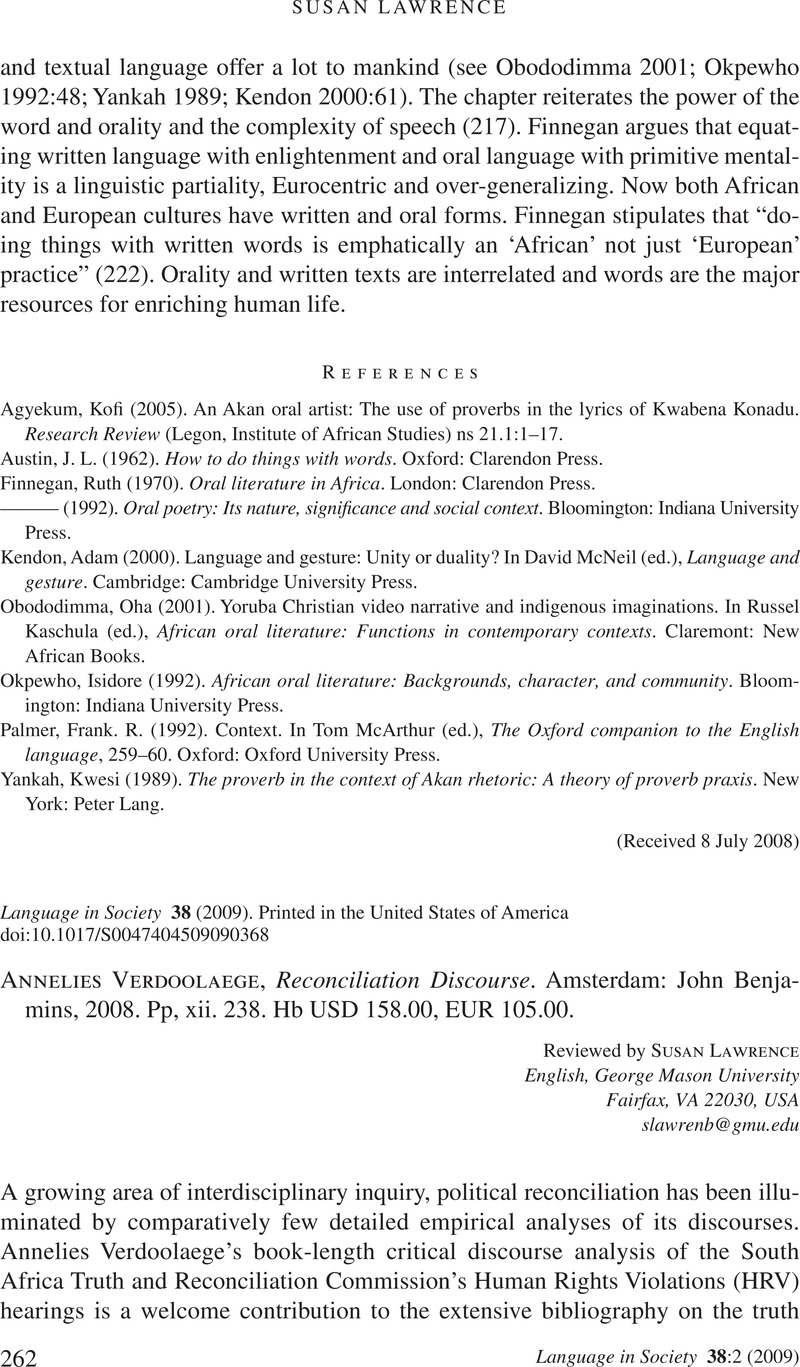No CrossRef data available.
Article contents
Annelies Verdoolaege, Reconciliation Discourse. Amsterdam: John Benjamins, 2008. Pp, xii. 238. Hb USD 158.00, EUR 105.00.
Published online by Cambridge University Press: 01 April 2009
Abstract
An abstract is not available for this content so a preview has been provided. Please use the Get access link above for information on how to access this content.

- Type
- Book Reviews
- Information
- Copyright
- Copyright © Cambridge University Press 2009
References
Anthonissen, Christine (2006). Critical discourse analysis as an analytic tool in considering selected, prominent features of TRC testimonies. Journal of Language and Politics 5:71–96.CrossRefGoogle Scholar
Blommaert, Jan; Bock, Mary; & McCormick, Kay (2006). Narrative equality in the TRC hearings: On the hearability of hidden transcripts. Journal of Language and Politics 5:37–70.CrossRefGoogle Scholar
Doxtader, Erik (2003). Easy to forget or never (again) hard to remember? History, memory and the “publicity” of amnesty. In Villa-Vicencio, Charles & Doxtader, Erik (eds.), The provocations of amnesty: Memory, justice and impunity, 121–55. Trenton, NJ: Africa World.Google Scholar
Mamdani, Mahmood (2001). A diminished truth. In James, Wilmot & Vijver, Linda van de (eds.), After the TRC: Reflections on truth and reconciliation in South Africa, 58–61. Athens: Ohio University Press.Google Scholar


